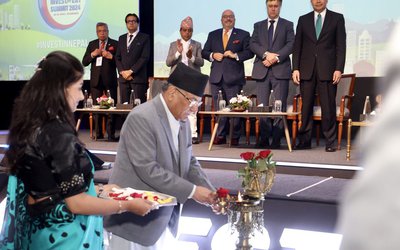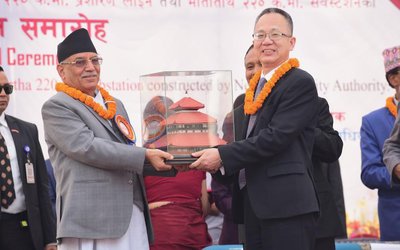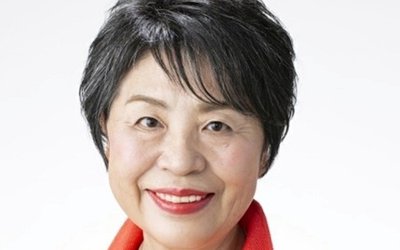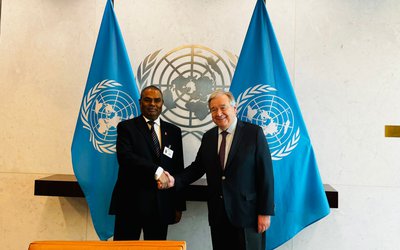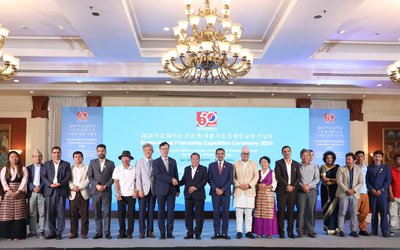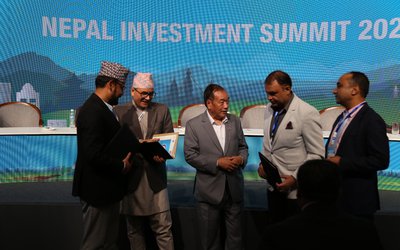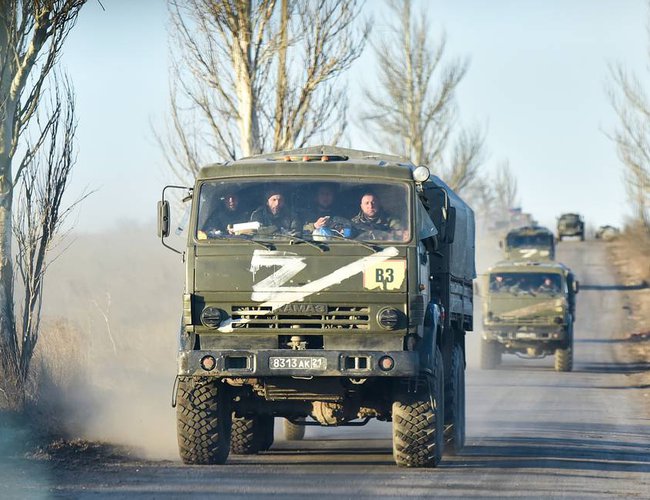
“Indo-Pacific Strategy” was ratified by the US on 11 Feb. Russia recognized Russian inhabited two regions in east Ukraine, the self-styled Donetsk People’s Republic and the Luhansk People’s Republic as independent states before launching the February 2022 aggression. Belarus stood as an enabler of the biggest assault in a European state since World War-II. Russian populous Crimea though was part of Ukraine with the collapse of the Soviet Union came under Russian effective control in 2014. Besides a few states recognizing the parliamentary procedures was declared as illegal and Ukraine refused to accept the annexation.
Over 5.1 million refugees have since left Ukraine, while an estimated 7.1 million people have been displaced within the country, more than 3200 deaths with Russia making it to 15000. As of 21stApril UN Commissioner for Human Rights (UNCHR) recorded 5264 civilians’ casualties: 2345 killed and 2919 injured noting that it could be much higher and violation of human rights.
The war has caused the fastest and largest displacement of people in Europe since World War-II. Russian invasion now has transmuted the political discourse in Europe. Sweden and Finland of becoming members of North Atlantic Treaty Organization (NATO) stepping away from their national identity of neutrality while Russia threatens nuclear deployment if the two nations join NATO. The dependence of energy from Russia particularly Germany has been seen as a set-back to the ‘War of Economy’. Russian assessment of the invasion sought to be over in a few days with a formation of a supportive government and declaration of more independent states. The prolonged war seems to drag Russia even to a point of losing its status as one of the global military powers and an exporter of energy and food.
South Asia stands fourth in nominal Gross Domestic Product with $ 6,472.28 billion after EU (18,183.95), China (24,127.84) and the US (27,659.16) in the world economy race. India ranks fourth after China, Russia and the US and Pakistan ninth in the Military Strength Ranking as per the globalfirepower.com. 3.5 percent of the world’s land surface area, 11.71percent of the Asian continent and 5.2 million square kilo meter with one fourth of world’s population (1.891 billion) is covered by South Asia. The most populous and most densely populated geographical region in the world accounts for approximately 34.49 percent of Asia’s population and over 24 percent of the world’s population. The influence by the war in looming.
When the world is being wedged by COVID-19 the war now has added to the predicament. A third of global wheat and barley, over half of world’s sunflower seed oil is produced in Russia and Ukraine. 36 countries count on them for more than half of their wheat exports. One fifth of world’s fertilizers is exported by Belarus and Russia when Russia is the world’s second largest exporter of crude oil after Saudi Arabia. The supply chain has been disrupted surging food and energy costs which 41 countries in Africa, 38 in the Asia Pacific and 28 in Latin America and the Caribbean are witnessing with spiraling fuel prices, surging food costs and syndrome of financial disorder.
As per the United Nations Development Program analysis, 1.7 billion people in 107 economies rigorously lay open to rising food prices, swelling fuel prices or governments struggling to make debt payments and stabilize their economies that bring about general climate of insecurity in domestic politics thus instability like Sri Lanka is South Asia.
The war in Europe did not come as a surprise. The strategic surroundings in Europe after the collapse of the Soviet Union is perceived through one, expansion of NATO, two, rising of the US inspiration in the sphere of interests of Russia, three, European nations inclinations to Russia for energy, four, US European policy during Donald Trump’s presidency and finally an extension of the cold war. Also known as the first European war of the 21st century, the Russo-Georgian War of 2008 was when Russia launched a full-scale land, air and sea invasion of Georgia including its undisputed territory on 8th August referring to it as a “peace enforcement operation”. Russia accused Georgia of an aggression against South Ossetia.
The 22-23 February 2014 Crimea peninsula annexation from Ukraine was the first part of the Russo-Ukrainian War. The United Nations General Assembly (UNGA) in March passed a non-binding resolution with 100 in favor, 11 against and 58 abstentions in the 193-nation assembly that declared Crimea’s Moscow backed referendum invalid with a range of international reactions to the annexation. The US government-imposed sanctions against persons they consider to have dishonoured or abetted in the violation of Ukraine's sovereignty, an act supported by the Lithuanian President.
The declaration of Donetsk and Luhansk as independent states before the launching of the aggression was another indication.
Divided South Asia in the United Nation General Assembly Resolution
In UNGA on 2nd March 141 countries of 193 members including Nepal voted in favor of the UN resolution 2623 to condemn and reprimand Russia for invading Ukraine and demanding that Moscow stop fighting and withdraw its military forces an action that aims to diplomatically detach Russia at the world body. 35 countries including China and India both Nepal’s immediate neighbors abstained from the resolution are not siding with Russia except five Belarus, Eritrea, North Korea, Russia and Syria that rejected the resolution.
The UNGA Ukraine Resolution has a question of the relevance of the United National particularly in South Asia of the eight members of South Asia Association for Regional Cooperation (SAARC) four abstained and four supported. Small states landlocked countries Nepal, Afghanistan, Bhutan and an island small nation Maldives supported the resolution while Bangladesh, India, Pakistan and Sri Lanka abstained but none objected. This elucidates how big nations and smaller nations in South Asia contradict.
The purchase of arms from Russia by India is 46 percent, Bangladesh 9.2 percent and Pakistan 5.6 percent whereas South Asian Nations together spend $63,606,086,665 fifth after UK who spends $68,000,000,000.
Economic impact a hindrance to prosperity and stability
South Asian countries recovery from economic devastation caused by the COVID-19 pandemic is once again thumped by the war. Balance of payment crisis in Sri Lanka, political crisis as well as energy subsides in Pakistan and the humanitarian disaster in Afghanistan, reduction of the inflow of tourists, weakened demand in Europe will hit Bangladesh’s exports and the upsurge in prices both in food and energy, adverse effect on people’s tangible income preceding high inflation in the other nations including Nepal. “The negative impact of the war in Ukraine on FY2022.23 growth is expected to be moderate, so growth will begin to taper off in the second half of 2022” a UNDP report said. As per the South Asia Economic Focus the 6.6 percent growth in 2022 and by 6.3 percent in 2023 can be revised downwards by 1.0 percent.
When these circumstances are comprehended Nepal’s, government sacked the governor of the central bank though re-instated by the court and stopped imports. When it is time for the governments to formulate monetary and fiscal policies to counter peripheral alarms and shield the vulnerability. Arranging the groundwork for green, resilient and inclusive growth should prevail.
Consequences of a long conflict
Russia beside losing the battle for Kyiv is assertive through the eastern theatre via Mykolaiv towards Odessa is understood to encircle the main land as well as to exclude access to the sea. President Biden steadfastness on military aid, economic assistance and provision to the refugees with the recent $800 million in more weaponry, direct economic aid of $500 million with a ban on Russian associated ships from docking at US ports, while bidding the Congress for added money to assist the Ukrainian military.
War culminates but also may be distorting. World War-I terminated with the signing by Germany and the Allies in Nov 1918 but the interwar period of 1920s and 1930s in Europe was submersed with apprehensions and pressures that concluded in another great war. The conclusion of World War-II manifested the dawn of the Cold War. You can argue that despite the collapse of the Soviet Union, the Cold War may not have ended. Tenth week into the war neither side can achieve their own intentions, Ukraine will not be able to drive out the Russian forces nor will Russia be able to fulfil its aim of political control over Ukraine. The strategic surroundings are ushering into the new era of conflict of a sustained conflict that could have long-term upshot in South Asia.
April has been a month of diplomatic manoeuvring in the war-torn Ukraine. Prime Minister Boris Johnson, top officials of the EU European Commission President Ursula von der Leyen and the Baltics have also visited Zelensky in Kyiv. The 25 April visit by US Secretary of State Blinken and Secretary of Defence Austin and the upcoming visit by the Under Secretary General of the UN to Kyiv and Moscow has four folds geostrategic interests of the US and the European nations, a weakened Russian military capabilities, sovereign and united Ukraine and finally a comprehensive peace deal offer.
The termination of the war could authenticate with reforms in the UN on the provisions of veto power by the five permanent, two, either reshape the international and global landscape from US domination or diplomatically and economically secluded Russia, three, Russia standing as the imminent European power politically and economically polarizing Europe or a weakened Russia militarily, economically and politically, four, vigorous diplomatic endeavours during and post war for geostrategic advantage, five, substitutes to the dependency on energy, food security and an alternative global supply chain and finally revitalizing Humanitarian law.
Economic sanctions may not be as effective as it has been sought without an alternative source particularly on supply of energy, food security and supply chain indicating a prolonged war.
Opportunity
The Russian invasion in Ukraine isn’t just Russian and Ukrainian affair. It has the potential to fundamentally reshape the global landscape. In some ways it already has: Germany is rearming, NATO has awakened, commodities prices are through the roof, and Russia is increasingly disconnected.
The extent to which the global order changes will depend largely on how long the conflict drags out. 35 countries that abstained occupies two third population and China, Pakistan, Bangladesh and India have 4 billion almost half the world’s population. Bangladesh, China, India and Pakistan are almost half of world population that decided not to side with US and NATO. Add Russia - half of military strength. Add Iran, Middle East and majority of African countries - more than half of land mass; oil and other minerals. South Asia will be impacted with trade, tourism, economic growth, connectivity, energy security, food security, forex generation and military modernization policies.
The reaction of small states of South Asia is giving precedence to their national interests apparently border issues and an outcome of their geographical setting and apprehensions positioned at the core of power disputation between China and India reflecting annexation of Tibet and Sikkim. Upholding UN Charter and the rights and independence of small states is primary supposing to countenance alike encounters in the region with the reinitiate the application of spheres of influence, dependance on geoeconomics for security, scenarios of neutrality, alliances and the trust on the west. Smaller economies of Nepal, Bhutan, Maldives and Sri Lanka are susceptible to peripheral dynamics and could perceive short-term growth inconsistencies than the large states Bangladesh and India.
Three issues appear protuberant for South Asians that is contending with mounting commodity prices, supply holdups and susceptibilities in financial quarters; one is to review the reliance on oil and fuel with improved energy security and the second food security with greener economy and finally for landlocked countries securing line of supply from the ocean to the mountains. The prolonged war in Ukraine will only amplify these challenges. The South Asian requires to be more strategically connected and to authenticate by lessening dependance on fuel imports and convert to a green, vigorous and inclusive growth trajectory.
Let me close with the argument of the regional bodies South Asia Association for Regional Cooperation and Bay of Bengal Initiative for Multi-Sectoral Technical and Economic Cooperation emerging in the forefront for common challenges that needs common solutions for long-term international politics and diplomacy.
Basnyat is a Strategic Analyst and a former Nepali Army Major General

Binoj Basnyat
Basnyat is a retired Nepali Army Major General, is a political and security analyst
- The Nepal Opportunity 2079
- Feb 04, 2022
- Change Of Guards Part -II
- Jan 07, 2022
- How India Lost Post 12-Point Agreement
- Dec 29, 2021
- US Troops Withdrawal From Afghanistan And Implication To South Asia
- Jul 31, 2021
- COVID-19: Planning Fallacy And Final Challenges
- Jun 03, 2021

